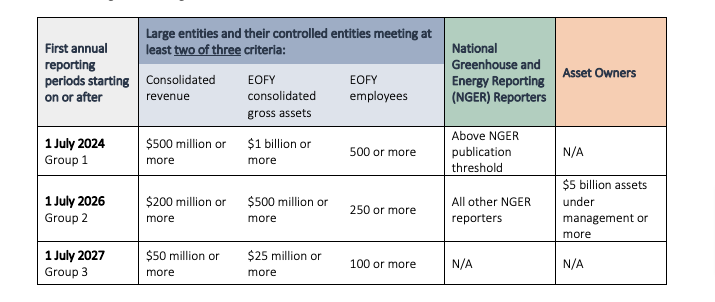New legislation in Australia has been introduced for mandatory climate reporting rules that will require business owners to estimate their company’s emissions and outline plans to tackle future risks.
It will come into effect today and was passed in September of last year. The Australian Institute of Company Directors (ACID) said it is the most significant change to reporting requirements and director responsibilities in a generation.
"It's actually quite a fundamental step change in reporting and there probably hasn't been as significant a change since 2003, when we moved from sort of domestic financial standards to international financial reporting standards," ACID CEO Mark Rigotti told ABC News.
The law requires companies to publish an annual climate report outlining any material climate risks they may face and their scope one, two and three greenhouse gas emissions.
Scope one refers to direct emissions generated within and by the company, through its operations. Scope two is indirect emissions generated through electricity consumption and transport, and scope three refers to broader emissions generated in a company’s supply chain or by its suppliers.
Businesses will need to disclose information about their strategies, governance, and risk management plans related to those risks and emissions.
The rules will be formalised under standards set by the International Sustainability Board (ISSB) and require auditing like the rest of the organisation’s financial statements.
As of today, the legislation will only focus on larger businesses, eventually branching out to all businesses by 2027.

Before this legislation, sustainability reporting was done on a voluntary basis. KPMG analysis shows that 82% of ASX100 companies are already publishing stand-alone Environmental, Social and Governance reports with their existing financial statements.
Of those 97 companies, 78% are reporting scope three emissions and 58% have a climate action plan.
